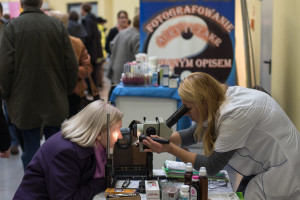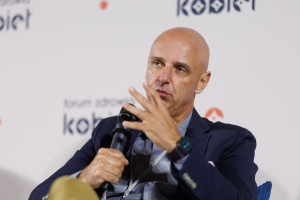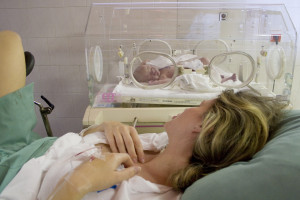An endocrinologist discusses the pitfalls of the "My Health" program. Key tips for doctors.

Author: MCD • Source: Rynek Zdrowia • Published: July 12, 2025 07:50
"I see pitfalls in the 'Moje Zdrowie' program. Thyroid disease screening focuses solely on thyroid function, and we don't have any guidelines or a procedure for examining the morphology of the thyroid gland, i.e., ultrasound," notes Dr. Agnieszka Żak-Gołąb from the University Clinical Center of the Medical University of Silesia in an interview with Rynek Zdrowia.
One in five Poles struggles with thyroid dysfunction, with women most often affected. We discussed which symptoms should increase the vigilance of patients and primary care physicians during the Women's Health Forum in Katowice.
Dr. Agnieszka Żak-Gołąb, a specialist in endocrinology and diabetology from the Clinic of Internal, Autoimmune and Metabolic Medicine of the University Clinical Centre of the Silesian Medical University, emphasizes in an interview with Rynek Zdrowia that the treatment of hypothyroidism can be successfully carried out by a primary care physician.
"Nevertheless, during the course of treatment, such a patient should be consulted by an endocrinologist. This doesn't necessarily have to be at the beginning of therapy," he emphasizes.
The expert admits that she was enthusiastic about the "Moje Zdrowie" program implemented in May, which expands the existing Prevention 40 Plus program to include diagnostics for patients aged 20 to 39.
"The program addresses the persistent need for endocrinologists to measure TSH levels as the screening test for thyroid function . However, I see pitfalls with this program. Screening focuses solely on thyroid function, and we lack any guidelines or guidelines for thyroid morphology testing, i.e., ultrasound ," he notes.
He also warns that detecting an abnormal TSH level requires further testing. He has three key guidelines that primary care physicians should follow when diagnosing and treating hypothyroidism. "Let's approach thyroid diagnostics in a dualistic way. On the one hand, we have the assessment of thyroid function, which is obviously achieved by testing thyrotropin, but on the other, we need to consider a complete blood count," he lists.
Copyrighted material - reprint rules are specified in the regulations .
rynekzdrowia











